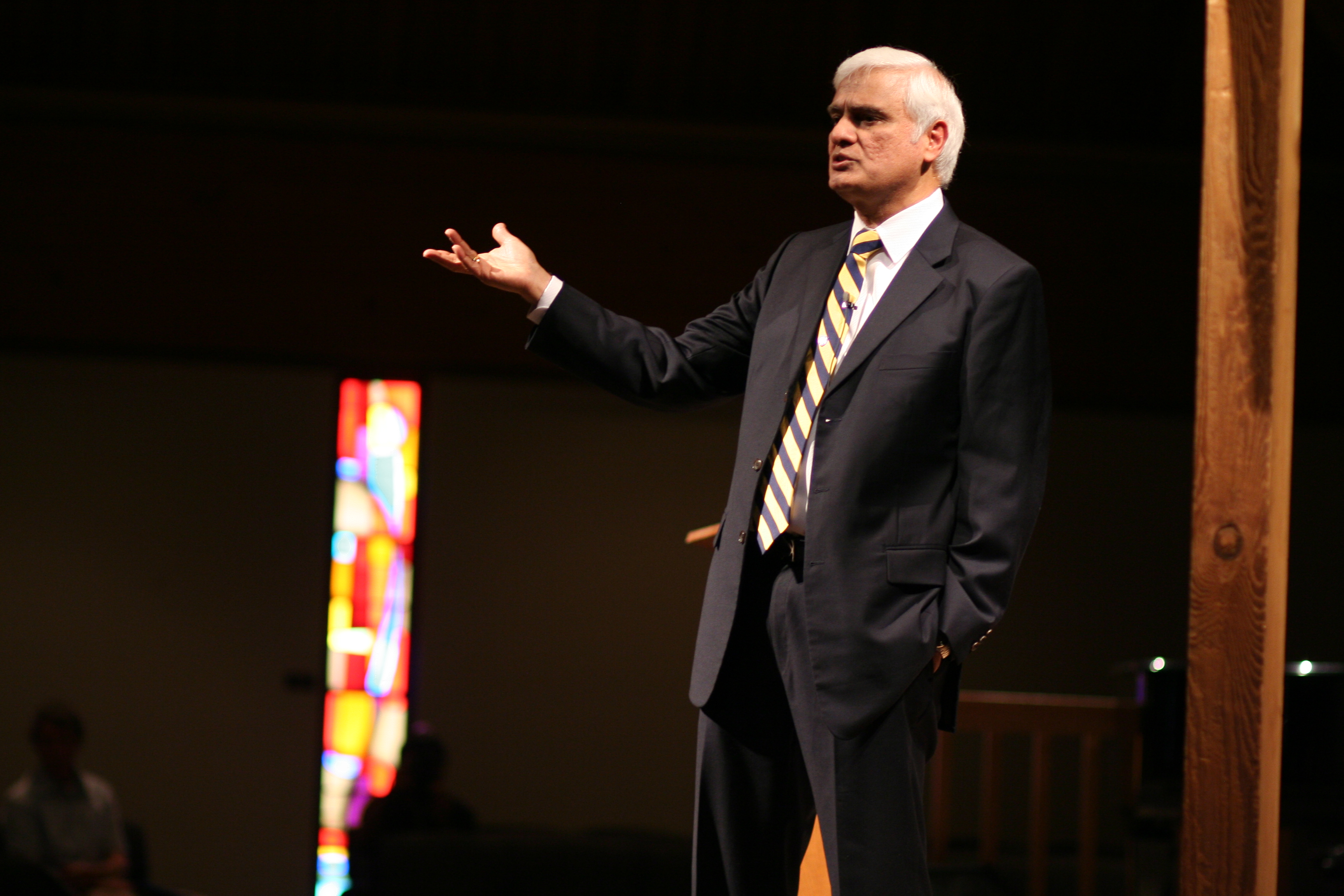
On Tuesday, February 7, a talk entitled “What Does It Mean To Be Human?” drew thousands to Hill Auditorium, filling the venue to capacity. Mr. Abdu Murray and Dr. Ravi Zacharias, both Christians, endeavored to defend the Judeo-Christian notion of human dignity. Both noted that even ardent secularists were beginning to realize the impossibility of defending the critical concept of intrinsic human dignity absent a transcendence in which to ground it and give it meaning.
Murray, an alumnus of the University of Michigan as both a psychology undergraduate and as a law student, spoke of the necessity of human dignity. He defined it as being “valued objectively,” independent of what others think. He spoke further about how we are hard-wired for relationship because, in his view, we are created that way by God. “You are an incurably relational being,” he said. He spoke further contra the crude reductionism pushed by materialism and atheism, which say that human beings are nothing more than “meat computers,” “DNA propagators,” and “cosmic pollution.”
Zacharias took the stage afterward. He is a noted speaker who has given addresses before the United Nations and around the globe for several decades, and he spoke of four ways of knowing what it is to be human.
The first of these stems from biblical designation/creation. According to Scripture, we are made for relationship, which is why even Jesus could not reduce the Judaic Law down to a single rule. It had to include loving “your neighbor as yourself,” in addition to loving “the Lord your God with all your heart, and with all your soul, and with all your mind, and with all your strength.”
Second, Zacharias explored the importance of Incarnational designation/creation, or the notion that Christ came to give us Truth but also grace. According to him, “Truth is the most important thing out there, but without grace, it can become merciless and cruel.”
Third, he described the transformation of the human heart by God. Zacharias argued that to be human means that God can enter into your life and fundamentally transform you from within. He cited an example from a prison he once visited in Baton Rouge, where a man sentenced to life without parole for a horrible crime stated that he was indeed free even as he was behind bars, because God had revealed Himself to him and touched his heart.
Finally, he spoke to consummation, or the Resurrection of Christ. Christians have the hope of resurrection because Christ Himself was resurrected, and this is integral to what it means to be human. We have hope in life eternal.
Both men touched on everyday life as well, noting the struggles unique to us in our own contemporary moment. Murray noted a pervasive “us versus them” mentality, especially prevalent on social media, where our biting, casually bandied about words often preclude a recognition of and, further, attack, people’s fundamental dignity. Zacharias also warned against mixing religion and politics, saying, “Whenever religion becomes politicized, both it and politics are destroyed.”
The night ended with a Q&A, where many secular students and skeptics came forward to ask challenging questions of both men. It was cordial and well done. One questioner asked what qualities were required to be human. Both men agreed that qualities were not what mattered but rather “essence,” or an essential nature. This took Murray onto the topic of racism (in keeping with both their efforts to connect the talk to our contemporary moment), which he argued was “worse, in some ways, than murder, because it devalues [a person], and calls them less-than.”
The talk, while informative, had its share of deficiencies. Both men were very keen on appeals rooted in pathos; they focused fairly heavily on emotional stories whose purpose was to further emphasize the more fundamental point about human dignity they were expressing at the moment but which were not by themselves convincing to anyone who did not already agree with them. For example, to illustrate our relational nature, Dr. Zacharias spoke of a woman who told him in exasperation that she was losing her mind. Her three-year-old son piped up, saying, “Mom, just please don’t lose your heart, because that’s where I am.” In addition, both men seemed to accept uncritically certain notions at home in Progressive thought, i.e., that religion ought not inform politics and that certain “-isms” are on par morally with other offenses traditionally (and I think rightly) considered far more grievous. It would have been nice to have heard them offer more formal arguments, with anecdotes used to enhance, rather than as the main event, so to speak.
Was the event touching? Yes. Was it analytically rigorous? Not so much. Will it get people to talk about the important notion of intrinsic human dignity and its relationship to our most pressing societal and global challenges? Absolutely. And that’s a good outcome indeed.
